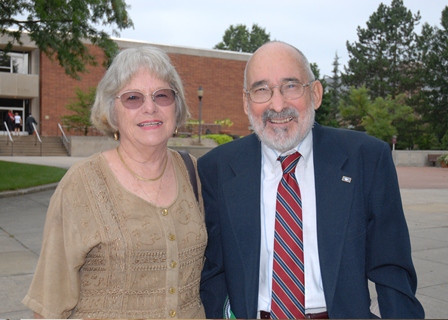Our Founder
 Founded by Dr. Phil Bosserman in 1992, the Center for Teaching Peace was the Center for Conflict Resolution’s precursor. It was designed to support the 1992 launch of the Peace Studies minor in Salisbury State’s Sociology Department. As the Peace Studies minor grew in popularity and the need for mediation and other conflict resolution services in the local community became apparent, the Center slowly started to grow. In 1995 under Dr. Bosserman’s continuous leadership, the Center for Teaching Peace was renamed the Center for Conflict Resolution and relocated to a large old house directly across the street from Salisbury University’s Holloway Hall.
Founded by Dr. Phil Bosserman in 1992, the Center for Teaching Peace was the Center for Conflict Resolution’s precursor. It was designed to support the 1992 launch of the Peace Studies minor in Salisbury State’s Sociology Department. As the Peace Studies minor grew in popularity and the need for mediation and other conflict resolution services in the local community became apparent, the Center slowly started to grow. In 1995 under Dr. Bosserman’s continuous leadership, the Center for Teaching Peace was renamed the Center for Conflict Resolution and relocated to a large old house directly across the street from Salisbury University’s Holloway Hall.
The Center for Conflict Resolution became incorporated as a nonprofit organization in 1997 and experienced even more growth and success in the late 1990’s.
In 2000, Dr. Brian Polkinghorn took over as Executive Director of the Center from Dr. Bosserman and in the same year the Center started operating under its own budget separately from the University through grant and contracts. In 2001 through collaborative and joint efforts with the University, the Center was reconstructed along with the development of one of the first conflict analysis and dispute resolution majors at a public university in the United States.
In 2008, the Center had grown to a staff of eight and the Department of Conflict Analysis and Dispute Resolution was created as a separate entity from the Sociology department where it was previously housed. The Department for Conflict Analysis and Dispute Resolution welcomed its first cohort into the newly formed Master of Arts degree program in 2009.
The Center’s reach and programs were expanded further in 2010 with 14 staff members and 12 professional affiliates making it one of the largest academic, practice, and research based centers in the United States. The Center’s work continues through major grant research, ongoing graduate and undergraduate education; and innovative and impactful training at the local, national, and international levels.
In 2012, the Center for Conflict Resolution changed its name to The Bosserman Center for Conflict Resolution in recognition of our founder’s lifelong dedication towards building a more peaceful world.
Our Mission
The Mission of the Bosserman Center for Conflict Resolution is to promote a systems-based approach to the effective analysis and practical resolution of social conflict. The Center utilizes a teaching hospital model whereby faculty and staff practitioners mentor and supervise both undergraduate and graduate students who take part in our research projects, training, workshop and service programs locally, nationally and globally.
